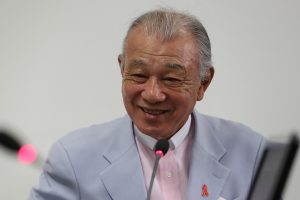One of the least heralded developments to have taken place in Myanmar since the country’s election on November 8 is the lull in fighting in Rakhine State in the west of the country. Until last month, fighting between the Myanmar military and the Arakan Army (AA), which is fighting for greater autonomy from the central government, had raged in Rakhine since 2018. During that time, it had killed or injured hundreds and forced some 226,000 people to flee their homes.
The conflict followed the army’s brutal assault on Muslim Rohingya communities in northern Rakhine, which caused thousands of civilian deaths and drove more than 700,000 people over the border into Bangladesh.
The fighting also prompted the Union Election Commission (UEC) to cancel the elections in nine townships of northern Rakhine State, in addition to other conflict-torn parts of Myanmar, claiming that these regions were “not in a situation to hold free and fair elections.” But now, an informal ceasefire between the AA and the Myanmar military, or Tatmadaw, has opened the door to supplementary elections in Rakhine, and beyond that, to the glimmer of a lasting solution to the civil war.
As detailed recently by the excellent Frontier Myanmar, the fragile ceasefire has pertained since November 12, when the AA issued a statement requesting that the government and the Tatmadaw hold by-elections in the nine townships by the end of the year. It also pledged to observe a unilateral ceasefire in order to enable the vote to go ahead. The Tatmadaw quickly welcomed the AA’s announcement and said it would do its best to ensure that the by-election goes ahead. For the first time in more than two years, the guns fell silent across Rakhine.
It has since emerged that Japan played an important role in mediating the incipient ceasefire talks between the two sides. According to Frontier, Tatmadaw Commander-in-Chief Sen. Gen. Min Aung Hlaing asked Japan’s special peace envoy Sasakawa Yohei to approach the AA to “coordinate for possible holding of elections in northern Rakhine where the election did not take place on November 8.”
Sasakawa, who is also the chairman of Japan’s Nippon Foundation, which has long been active in Myanmar’s labyrinthine peace process, subsequently traveled to war-torn townships in Rakhine and met with local people, officials from township election commissions, and representatives from the Arakan National Party (ANP), which enjoys considerable support from the state’s Buddhist Rakhine population.
At a press conference in the state capital Sittwe, he said in order for the 2020 election to be considered a “fair election, it is important to hold polls in the nine townships” in Rakhine State where voting was largely cancelled. He also met with State Counselor Aung San Suu Kyi and representatives from the UEC, although public details on those visits were not released.
As Frontier Myanmar notes, the holding of successful elections would be something of a diplomatic coup for Tokyo, which has recently been criticized for abetting human rights abuses in Southeast Asia in order to compete with China for influence in the region. China has considerable interests in Rakhine, particularly the southern regions of the state, which form the coastal terminus of the various large-scale infrastructure projects designed to link China’s Yunnan province to the sea.
Will the elections in Rakhine go ahead? Much depends on the UEC. In an interview with The Irrawaddy, Sasakawa noted that ethnic armed groups “have already declared that they won’t disturb the election” in Rakhine and Shan states, but that the UEC was dragging its feet. “In my opinion, I can see that they do not want to hold elections,” he told the publication.
The cynical interpretation is that the UEC is unwilling to approve any election that is likely to play to the detriment of the ruling National League for Democracy (NLD). When the UEC announced the raft of cancellations in October, critics pointed out that the elections had been called off in seven constituencies held by the ANP, but still went ahead in three of the four Rakhine constituencies under NLD control. The implication is that the UEC is essentially doing the bidding of the NLD.
Myanmar’s ruling party also seems ambivalent about the idea. One party spokesperson expressed support for elections, but pointed to a law stating that by-elections cannot be held in the first or last year of the parliament’s term. This would mean that elections could not be held until 2022 at the earliest. Whether these elections would technically qualify as “by-elections” remains a matter of dispute. One obstacle for gaining the NLD government’s support was the abduction of three of NLD party candidates by AA insurgents in October, who remain in the group’s custody.
As Frontier notes, there are also genuine obstacles to the holding of free and fair elections in the conflict zones of Rakhine State. One is the challenge of how to organize the 226,000 people displaced by the conflict. Another concerns the damage to the local administrative apparatus that would actually implement and oversee the elections in the region’s townships and villages.
Holding elections in Rakhine State would be a significant achievement – but just the first of many that would be needed to bring peace to one of Myanmar’s most troubled regions.

































